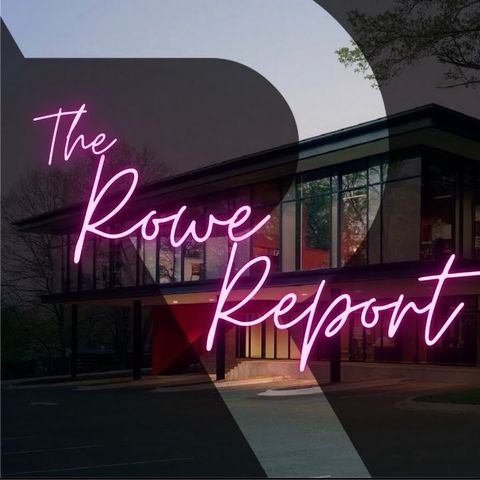Even the highest achievers occasionally grapple with feelings of self-doubt, insecurity, and impostor syndrome throughout their career journeys. These interior demons persistently whisper that we are undeserving of accomplishments earned through merit, don't truly possess hard-won skills, or will soon be exposed as frauds winging it rather than experts worthy of respect. While research shows that an astounding 70% of people fall prey to such thoughts at some point, few talk openly about struggling with confidence despite external cues of exceeding capability. On this vulnerable episode of the Rowe Report, host Elizabeth Rowe interviews licensed psychologist Dr. Margaret Rutherford to pull back the curtain on the impostor experience—why it is so common yet hidden, how insecurity sabotages success, and most importantly, how we can rewrite limiting self-narratives. Dr. Rutherford shares that impostor syndrome often first manifests for high achievers when praise feels disconnected from actual self-perception. Despite objective talent and outputs, lingering lack of belonging or harsh internal critics overpower external proof of competency already attained. Mental filtering then concentrates on scrutinizing inevitable mistakes rather than acknowledging process strengths. Gradually, an identity split emerges between public, talented personas and inward feeling like undeserving fakes. The psychologist stresses that this painful dichotomy stems from unconscious childhood patterns and is not anywhere near the reality of present-day gifts. From perfectionism and workaholism attempts to overcompensate to the psychological concept of foreclosure, which describes purposeful pathways chosen for us by family, diverse causes drive imposter thoughts. But growth lies in compassionately unraveling why our minds cling to outdated inadequacy stories today. Dr. Rutherford advocates gentle inquiry, celebrating incremental wins however small, and anchoring into our resilience during past successes to deepen self-trust where tapes loop distorted doubts. Shared vulnerability lets light reach the darkest emotional corners. Impostor experiences mark universal growing pains, not character flaws. Authenticity wins as high achievers give themselves permission to drop exhaustive masks by embracing imperfection. Trading isolation for community support builds lasting confidence, as does reframing perceived mistakes into reimbursable risks and honoring unique journeys. Rewriting false narratives requires patience but transforms relationships, starting with an inward connection. Soon, emotional congruence ripples outward as wholehearted living aligns being with doing. However, imposter syndrome manifests uniquely for you; know that you are not alone. This candid discussion offers pathways illuminating that universal inner critic we all share yet keeps too many leaders fragmented behind deceptive, strong facades. As Brené Brown reminds us, living with leapt courage despite uncertainty unites human experiences far more than the exceptionalism illusion that imposter syndrome tricks us into chasing yet never satisfying. Find freedom from self-imposed burdens by leaning into this vulnerable, wise conversation, modeling earned confidence as our birthright.
Watch on YouTube:
https://youtu.be/51GN6BVbQ6g


Comments